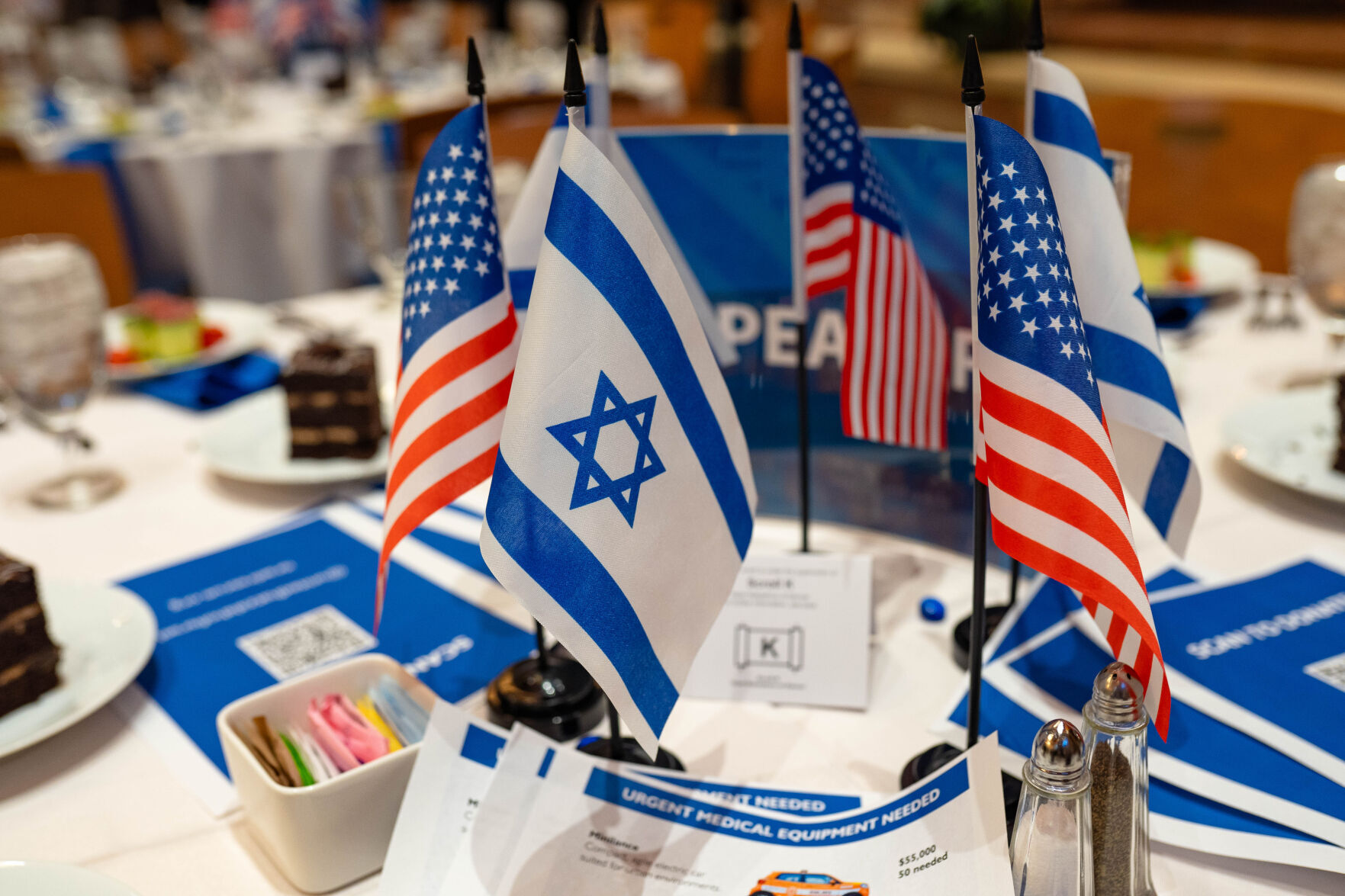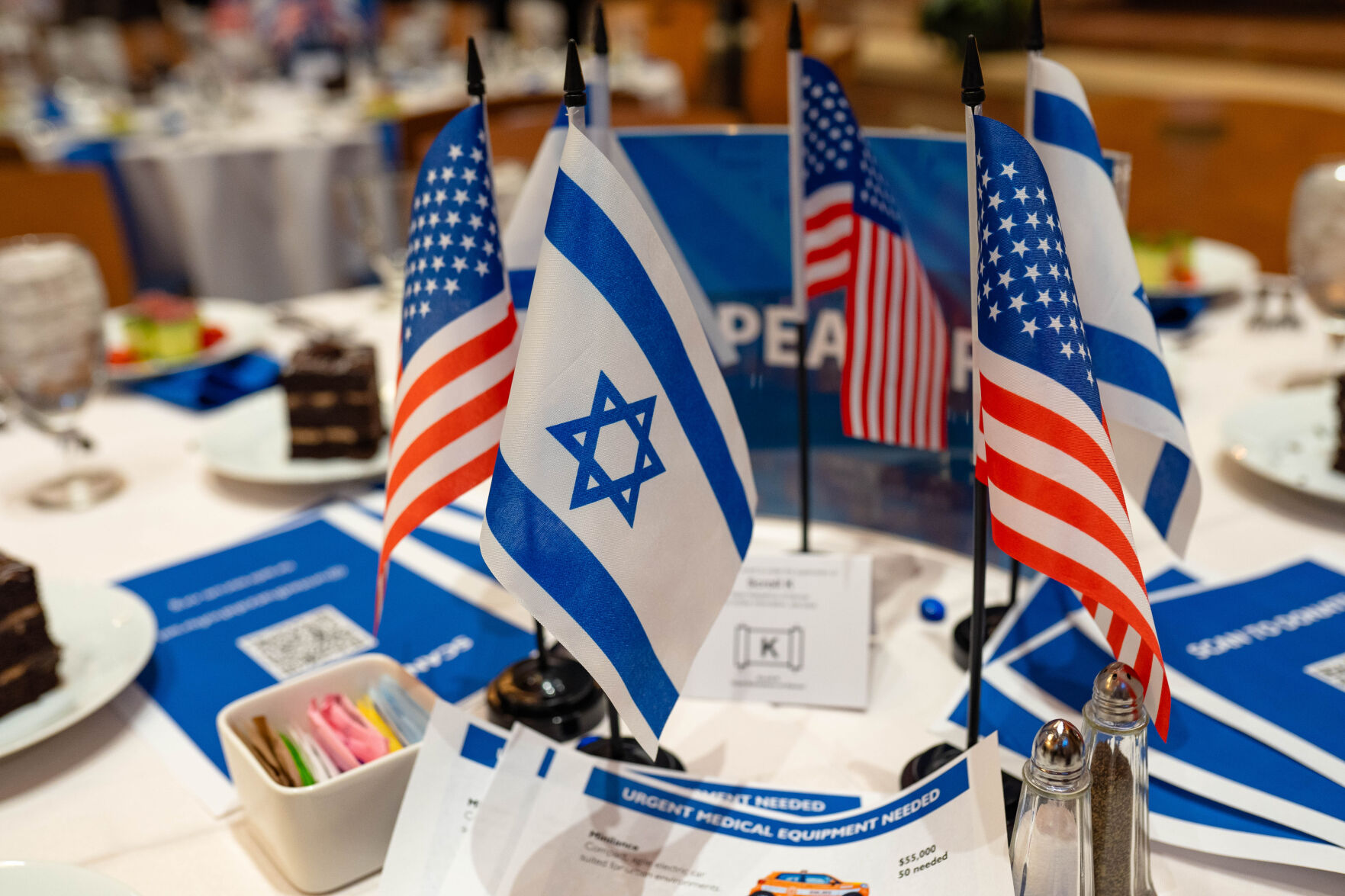Six months of war and the Jewish tradition of questioning | SONDERMANN

April 7 is upon us. Subtract six months and we are back to the fateful, horrifying, game-changing day of October 7.
For Israel and its neighbors, that is now a date permanently etched in blood and in the collective consciousness. In America, the date is instantly recognizable shorthand to go along with September 11 and January 6.
Given my religion and my origins as the child of two Holocaust refugees, it is an anniversary I cannot let pass. Even if, as a commentator, my task is to bring clarity to a situation, and I acknowledge being unable to do so. The muddle is even thicker than it was six months back.
It should be possible to agree to a few premises. The Hamas attack on October 7 was calculated and brutal. Israel as a sovereign nation has the right to defend itself. Palestinians have long received the short end of the stick. War is ugly and tragic.
Such stipulations should not be all that difficult but are still in dispute in too many quarters.
Asking questions is a key part of Jewish heritage and tradition. Passover, soon upcoming, is sometimes referred to as the night of questions.
The America physicist, Isadore Rabi, won the Nobel Prize in 1944 for his discovery of nuclear magnetic resonance. We now know this technology as an MRI machine.
Once asked why he became a scientist, Rabi replied, “My mother made me a scientist without even knowing it. Every other child would come home from school and be asked, ‘What did you learn today?’ My mother used to ask a different question. ‘Izzy,’ she always used to say, ‘did you ask a good question today?'”
To question is to seek to understand better and to express some measure of doubt. From the most devoted supporter of Israel right or wrong to the most hardened antisemite, absolute certainty as to this conflict should be rejected. As uncomfortable as it may be for many to doubt and query, it is an instinct to be embraced.
With that in mind, allow me to pose eight questions, double the Passover allotment, as to what we have witnessed over these months and what it means.
1. While the October 7 attack served to unify Israel around an existential cause, dig a layer or two down and you will find an increasingly divided country. The polarization Americans know too well has metastasized around the globe. Israel is far from immune. Even leaving aside Arab Israelis, secular Jews differ with deeply observant Jews. Those with roots in Europe or the U.S differ with those of lineage from Africa or the Middle East.
Given Israel’s isolation, the narrow sliver of land within its borders and the threats all around, how is that national cohesion regained?
2. Hamas’s barbarity on October 7 and the resulting war bought Israeli Prime Minister Benjamin Netanyahu a reprieve from corruption investigations and deeply underwater approval ratings. He knows conflict. But he is absolutely the wrong person to lead his country out of this mess or to make peace. How does Israel move on from Bibi?
3. Public relations is not everything. War was plenty wretched before cameras grew ubiquitous and news aired 24/7. But is there not a way for Israel to accomplish its military objectives while also recognizing and redressing, even a bit, the humanitarian crisis in its wake?
Clearing out tunnels and eradicating Hamas’s war-making capabilities are essential. Can’t that be pursued without relinquishing every precious piece of moral high ground?
4. Who knows what end game Hamas had planned in launching the October 7 slaughter? Perhaps this is what they sought – photos of a devastated Gaza, Israel ever more diplomatically isolated, and a halt to the rapprochement between Israel and Saudi Arabia.
But can we not also ask what end game Netanyahu, and his generals have in mind? What does victory look like and when is it achieved? And what then?
5. What about Hamas as well as Hezbollah and other Iranian proxies? For that matter, what about the Palestinian Authority, such as it still exists?
Does Hamas care in the slightest for the plight of those who fly its flag in Gaza? Do any of these entities have a sincere interest in running a functional state and making peace with Israel? Or is their agenda one of perpetual grievance while chanting “from the river to the sea?”
6. A two-state solution has been holy grail for decades on the part of most Americans as well as a large chunk of Israelis. The same has been true for peacemakers the world over.
Sad as it is for me to pose the question, to what extent does that remain a viable goal? Have not a series of Netanyahu-led governments concertedly sabotaged any such arrangement? Have not an endless series of incursions and hostilities from Gaza and Israel’s north served the same defeating purpose?
If not a two-state solution, then what remedy is out there to be had?
7. Of most proximate relevance here in America, notable, widespread antisemitism, once thought relegated to history, has reared its despicable head. Some will protest that this has been nothing more than support for the Palestinian case. But that is a thin disguise. A glaring double-standard accompanied by intellectual rot has been exposed on too many college campuses.
All of this has immeasurably compounded the trauma of October 7. For a people long persecuted, what are Jews to do with the realization that this age-old hatred was merely dormant, not extinguished?
8. In a world of over eight billion souls, well under 16 million identify as Jewish. That makes for the smallest of fractions. Of those Jews, about 60 percent call Israel home while the other 40 percent make up the diaspora spread wide, though with the United States being the next largest center.
The question is increasingly being asked, albeit in limited circles, of whether Israel going forward will retain its centrality in Jewish life and faith. The traditional Seder concludes with, “Next year in Jerusalem.” As years pass, might that evolve to be less of a sentiment?
Just a week or two before October 7, my wife and I signed up for a trip to Israel with the Har Mishpacha congregation of Steamboat Springs. It was to be our first visit and was set for later this April.
That journey was scrubbed. Tourists are needed in Tel Aviv or Jerusalem at the moment about as much as in Kiev or Khartoum. Some year soon, we hope the tour can be rescheduled to a land of peace.
Eric Sondermann is a Colorado-based independent political commentator. He writes regularly for ColoradoPolitics and the Gazette newspapers. Reach him at EWS@EricSondermann.com; follow him at @EricSondermann













